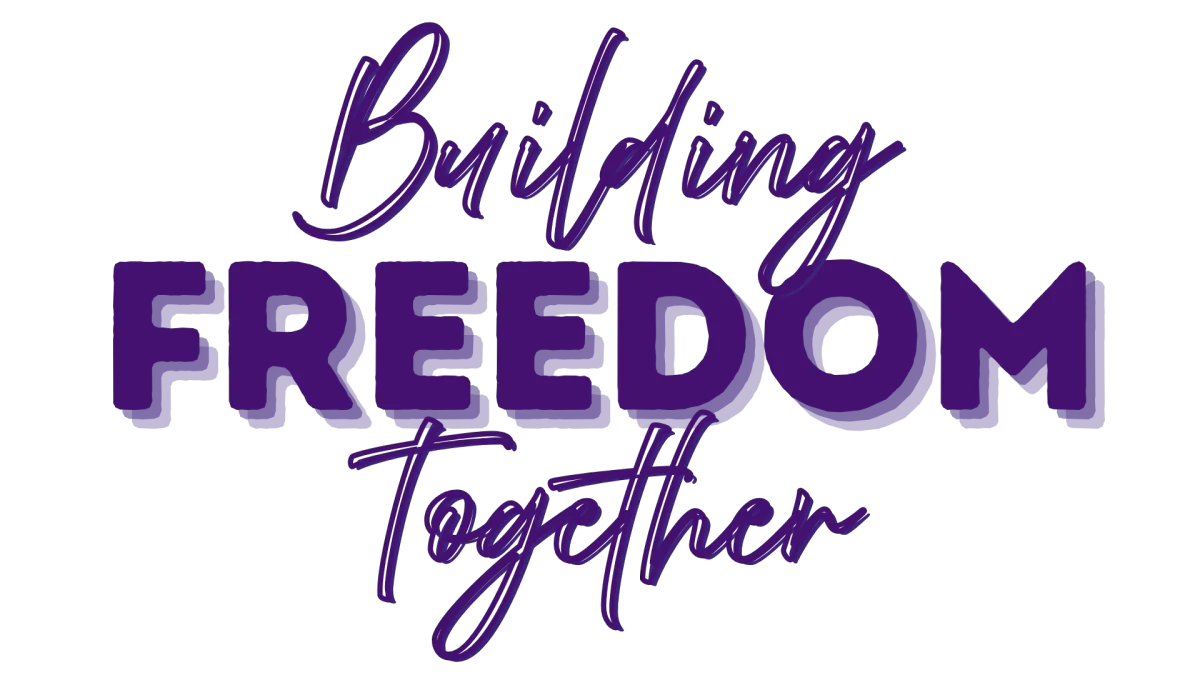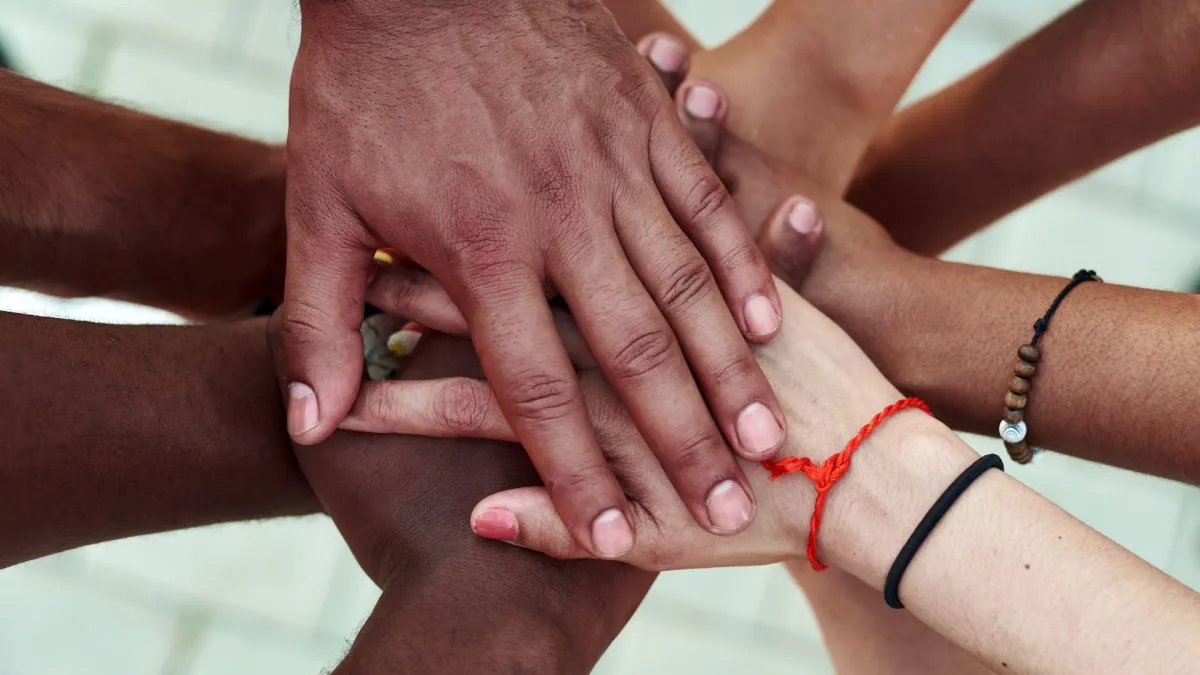
Anti-slavery Forum Agenda
Your Guide to 5 and 6 November 2025
DAY 1
5 November 2025
Wellbeing
& Arrival
07:00 AM - 07:30 AM
Beach walk - Depart from reception
08:15 AM - 09:15 AM
Registration and coffee (Ballroom Gallery)
Day 1 opens
Ballroom
09:15 AM - 09:45 AM
Welcome to Country
Delivered by:
Dr Aunty Joyce Donovan
Welcome to the Forum
Masters of Ceremonies:
Matilda Constable - Webb | Survivor Connections
Moe Turaga | Domus 8.7
Main plenary session
Day 1
Ballroom
09:45 AM - 11:00 AM
Keynote Address
Building Freedom Together
Delivered by:
Dr James Cockayne
NSW Anti-slavery Commissioner
Session Outline
The NSW Anti-slavery Commissioner will present his annual report for FY 2024-2025 and reflect on the successes of the past year and challenges ahead.
Fostering lived experience engagement
Delivered by:
Sarah Schricker
Office of the NSW Anti-slavery Commissioner
Session Outline
How can we foster effective engagement by people with lived experience in our anti-slavery efforts? This session will introduce the new OASC Lived Experience Engagement Policy.
Building Freedom Together - Survivor voices
Session Outline
This unique presentation creates the opportunity for survivors to contribute their chosen messages about remedy and responses to modern slavery on their own terms. It weaves together the voices of a diverse group of survivors in a rich tapestry of reflections. It explores themes of healing, remedy, and response, in authentic and expressive ways - chosen by the survivors themselves.
Panel Discussion
Towards slavery-free renewable energy and EVs
Tea break
Ballroom Gallery
11:00 AM - 11:30 AM
Tea break and networking - Reflection and relaxation spaces available (Ballroom Gallery)
Parallel sessions
Block 1
Day 1
Ballroom,
Kiera & Kembla,
11:30 AM - 12:45 PM
Prevention (Ballroom)
Paths to prevention: Economic empowerment
Moderator:
Carolyn Gowers | Project Respect
Panel:
Fiona David | Fair Futures
Matilda Constable - Webb | Survivor Connections
Sally Irwin | The Freedom Hub
Session Outline
Economic empowerment is crucial to both preventing exploitation and providing a pathway to recovery for people with lived experience. What skills and training are required for the anti-slavery movement to ensure survivors thrive?
Response and Remedy (Kiera & Kembla)
Empowering local response [Workshop]
Moderator:
Heather Moore | Australian Anti-Slavery Commissioner's Office
Session Outline
In this interactive Workshop, participants will discuss how local communities are responding to modern slavery in NSW, and what supports they need. How can NSW government help foster effective community response to modern slavery?
Lunch &
Wellbeing
Ballroom Gallery,
Pacific 1
12:45 PM - 02:00 PM
Lunch and networking (Ballroom Gallery)
Therapy Dogs (Pacific 1)
Parallel sessions
Block 2
Day 1
Belmore, Kiera & Kembla,
Pacific 2 & 3
02:00 PM - 03:45 PM
Responsible Business (Belmore)
Towards slavery-free domestic agriculture and horticulture [Workshop]
Moderator:
Dr James Cockayne | NSW Anti-slavery Commissioner
Session Outline
Temporary migrant workers are a vital part of NSW’s agriculture and horticulture industries, and contribute enormously to the economic and social health of rural and regional Australia. But exploitative actors and regulatory gaps have left some workers trapped in exploitative situations. This session seeks to answer: how do we ensure the workers who feed us are protected from modern slavery?
Prevention (Kiera & Kembla)
SENSITIVITY: Strengthening service capacity and coordination [Workshop]
Moderator:
Fiona David | Fair Futures
Session Outline
The landscape of services available to survivors of modern slavery is evolving, with new referral pathways, programmes and the emergence of peer support. But coordination between levels of government and service providers remains patchwork, major gaps in service remain, and the sector is massively under-resourced. This session asks: what opportunities are there over the next year to strengthen service capacity and coordination, including by learning from other sectors in NSW and beyond?
Response and Remedy (Pacific 2 & Pacific 3)
SENSITIVITY: Coercion, coercive control and exploitation
Moderator:
Associate Professor Anna Boucher | University of Sydney
Panel:
Dr Hannah Tonkin | NSW Women's Safety Commissioner
Christina Hey-Nguyen | SafeWork NSW
Det A/Sup Rachel Fawcett | NSW Police
Session Outline
Coercion is a key element of many modern slavery offences, but is also a means of control in intimate, domestic and family settings, as well as in the workplace. This panel considers how coercive control, sexual harassment and modern slavery overlap, and how responses can be effectively aligned.
Tea break, Wellbeing &
Personal time
Ballroom Gallery,
Pacific 1,
03:45 PM - 04:15 PM
Tea break and networking - Reflection and relaxation spaces available (Ballroom Gallery)
04:00 PM - 04:15 PM
Guided Meditation (Pacific 1)
04:15 PM - 06:00 PM
Personal time - Free time for you to connect with other Forum participants
Closed Debrief
Norfolk 2
04:15 PM - 05:00 PM
Closed debrief for people with lived experience (Norfolk 2)
Wellbeing
05:00 PM - 06:00 PM
Voluntary singalong
Celebration dinner
Ballroom
06:00 PM - 06:30 PM
Pre-dinner canapes (Ballroom Gallery)
07:00 PM - 10:30 PM
A celebration of community. Commissioner's Commendations, music and dancing
DAY 2
6 November 2025
Wellbeing
& Arrival
Pacific 1, Ballroom Gallery
07:00 AM - 07:30 AM
Beach walk - Depart from reception
07:00 AM - 08:00 AM
Yoga (Pacific 1)
08:30 AM - 09:00 AM
Registration and coffee (Ballroom Gallery)
Day 2 opens
Deck area,
Ballroom
09:00 AM - 09:15 AM
Smoking Ceremony and Acknowledgement to Country
(Outside Deck)
09.15 AM - 09.20 AM
Guests to move back to Ballroom
Main plenary session
Day 2
Ballroom
09.20 AM - 09.40 AM
Survivor voices
SENSITIVITY: A continuation of the contributions from survivors begun on Day 1.
09:40 AM - 10:00 AM
Keynote Address
Delivered by:
Commissioner Micaela Cronin
Australian Domestic, Family and Sexual Violence Commission
Session Outline
In this keynote address, Australia's first Domestic, Family and Sexual Violence Commissioner, Micaela Cronin, will reflect on how DFSV intersects with modern slavery, and what our national responses to these issues can learn from each other and achieve together.
10:15 AM - 10:45 AM
Panel Discussion
Reactions and audience Q & A
Moderator:
Dr James Cockayne
NSW Anti-slavery Commissioner
Panel:
Commissioner Micaela Cronin | Australian Domestic, Family and Sexual Violence Commission
Matt McCrory | People with disability Australia
Lina Garcia-Daza | Australian Red Cross
Dr Nerida Chazal | Adelaide University
Tea break
Ballroom Gallery,
10:45 AM - 11:15 AM
Tea break and networking - Reflection and relaxation spaces available (Ballroom Gallery)
Main plenary session
Ballroom
11:15 AM - 12:00 PM
Ministerial Address
Delivered by:
The Hon. Courtney Houssos, MLC
Minister for Finance, Minister for Domestic Manufacturing and Government Procurement, and Minister for Natural Resources
Session Outline
An address by the NSW Minister for Procurement
12:00 PM - 01:00 PM
Panel Discussion (Ballroom)
How can government, business and workers best cooperate to address modern slavery in supply-chains?
Moderator:
The Hon. Sarah Kaine MLC
Member of the NSW Legislative Council
Panel:
Commissioner Chris Evans | Australian Anti-Slavery Commissioner
Kelly McDonald | Transport for NSW
Meg Brodie | KPMG
Mark Morey | Unions NSW
Session Outline
This panel of government, business and union leaders will discuss how cooperation along value-chains is changing the way we identify and address modern slavery risks, and consider the outlook for future cooperation and reform.
Lunch
& Wellbeing
Ballroom Gallery,
Pacific 1
01:00 PM - 02:00 PM
Lunch and networking (Ballroom Gallery)
Therapy Dogs (Pacific 1)
Parallel sessions
Block 2
Day 2
Pacific 2 & 3
Belmore,
Ballroom
02:00 PM - 03:15 PM
Responsible Business (Pacific 2 & Pacific 3)
Strengthening engagement with workers
Moderator:
Annabel Hart | ERM
Panel:
Jenny Stanger | Domus 8.7
Dr Miriam Thompson | Cleaning Accountability Framework
Alejandro Morales | UWU
Session Outline
Systems which protect the rights of workers along supply chains must be based on engagement with, learning from, and involvement by workers. This session considers what this can look like in practice, drawing on examples of meaningful worker engagement in the cleaning, textiles and construction industry.
Prevention (Belmore)
Australia's implementation of the non-punishment principle
Moderator:
Dr James Cockayne | NSW Anti-slavery Commissioner
Panel:
Professor Nicole Siller | Deakin University
Ambassador Jane Duke | Ambassador to Counter Modern Slavery, People Smuggling and Human Trafficking, DFAT
Professor Felicity Gerry KC | Member of the Victorian Bar
Phillipa Stafford | Deakin University
Session Outline
Australia has long championed the non-punishment principle on the international stage, advocating for the protection of victims of trafficking from criminalisation. The panel will explore the application of the principle in Australia and the region.
Response and Remedy (Ballroom)
SENSITIVITY: Tackling barriers to accountability
Moderator:
Jade Tyrrell | Law Society NSW
Panel:
Freya Dinshaw | Human Rights Law Centre
David Hillard | Clayton Utz
Thomas Costa | Unions NSW
Session Outline
This Panel will consider the barriers to effective accountability faced by victims of modern slavery in NSW. It will consider litigation strategies and challenges, limits on access to effective criminal justice response and the Victims Rights Scheme, and challenges faced my migrant workers.
Tea break
Ballroom Gallery,
03:15 PM - 03:45 PM
Tea break and networking - Reflection and relaxation spaces available (Ballroom Gallery)
Parallel sessions
Block 3
Day 2
Kiera & Kembla,
Ballroom
03:45 PM - 05:00 PM
Responsible Business (Kiera & Kembla)
Collaborating to tackle modern slavery [Workshop]
Moderator:
Dr Meg Brodie | KPMG
Session Outline
Compliance burden is a key barrier to efficient and effective modern slavery due diligence. Creating systems to store and share supplier information across buyers significantly reduces this burden and improves supply chain transparency. This session will explore information-sharing initiatives and solutions, identify barriers, and suggest how these might be overcome.
Prevention (Ballroom)
Training frontline workers
Moderator:
Lucy Forbes | Office of the NSW Anti-slavery Commissioner
Panel:
Natalie Maxwell-Davis | Australian Red Cross Melbourne, Vic
Dr Nerida Chazal | Adelaide University
Helena Hassani | Boland Parwaz
Michael Cecilio | Office of the NSW Anti-slavery Commissioner
Session Outline
Having the knowledge and tools to identify and respond to modern slavery is critical to its prevention. How can we upskill frontline workers to identify, support and prevent modern slavery?
Main plenary closing reflections
Ballroom
05:00 PM - 05:20 PM
Wrap-up and close (Ballroom)
Delivered by:
Matilda Constable - Webb | Survivor Connections
Moe Turaga | Domus 8.7
Final Reflections
Delivered by:
Dr James Cockayne
NSW Anti-slavery Commissioner
Closed Debrief
Norfolk 2
05:30 PM - 06:00 PM
Closed debrief for people with lived experience (Norfolk 2)
Closing dinner
Drift Bar
05:30 PM - 07:30 PM
Networking and informal dinner (Drift Bar)
Lived experience participation supports
The NSW Anti-slavery Commissioner encourages participation in the Forum by people with lived experience of modern slavery. Office of the NSW Anti-slavery Commissioner has developed specific supports to ensure this participation is both safe and meaningful. Through this initiative, we have created an environment that supports trauma-informed and empathetic interactions between all participants.

We acknowledge that Aboriginal and Torres Strait Islander peoples are the first peoples and traditional custodians of Australia and the oldest continuing culture in human history, and we pay our respects to Elders past and present.
We acknowledge that First Nations communities in New South Wales have survived practices that today we call modern slavery and continue to live with its legacies.
